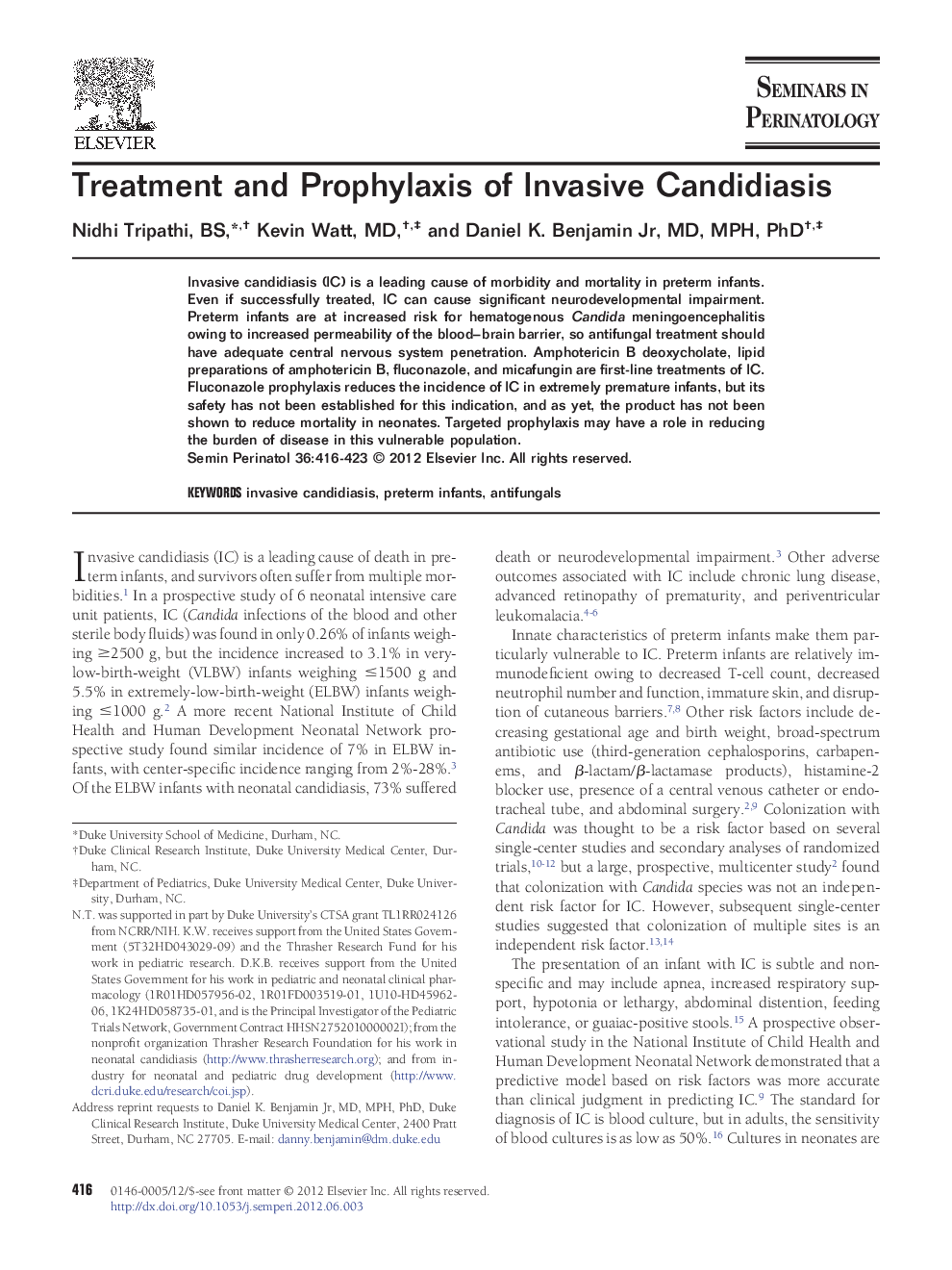| Article ID | Journal | Published Year | Pages | File Type |
|---|---|---|---|---|
| 3836350 | Seminars in Perinatology | 2012 | 8 Pages |
Invasive candidiasis (IC) is a leading cause of morbidity and mortality in preterm infants. Even if successfully treated, IC can cause significant neurodevelopmental impairment. Preterm infants are at increased risk for hematogenous Candida meningoencephalitis owing to increased permeability of the blood–brain barrier, so antifungal treatment should have adequate central nervous system penetration. Amphotericin B deoxycholate, lipid preparations of amphotericin B, fluconazole, and micafungin are first-line treatments of IC. Fluconazole prophylaxis reduces the incidence of IC in extremely premature infants, but its safety has not been established for this indication, and as yet, the product has not been shown to reduce mortality in neonates. Targeted prophylaxis may have a role in reducing the burden of disease in this vulnerable population.
